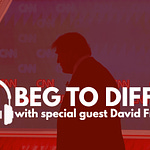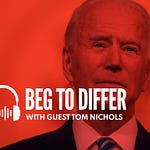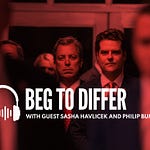Law professor and AEI scholar Adam White joins the show to answer legal questions about Trump's trials. The panel then discusses whether prosecuting a former (future?) president is wise or necessary. And in our Highlights and Lowlights segment, Adam celebrates the arrival of a new monograph about director Whit Stillman, whose films include ‘Metropolitan…
Share this post

Look Who's Claiming to Care about Norms Now
www.thebulwark.com
Look Who's Claiming to Care about Norms Now
Sep 01, 2023
∙ Paid
Beg to Differ
Audio
Video
Each week Mona Charen is joined by Linda Chavez, Bill Galston, Damon Linker, and a guest to discuss the news of the week in a respectful, rational forum.
An ad-free edition is exclusively available for Bulwark+ members.
Each week Mona Charen is joined by Linda Chavez, Bill Galston, Damon Linker, and a guest to discuss the news of the week in a respectful, rational forum.
An ad-free edition is exclusively available for Bulwark+ members.Listen on
Substack App
Apple Podcasts
Spotify
YouTube Music
YouTube
Overcast
Pocket Casts
RSS Feed
Appears in episode
Recent Episodes



























